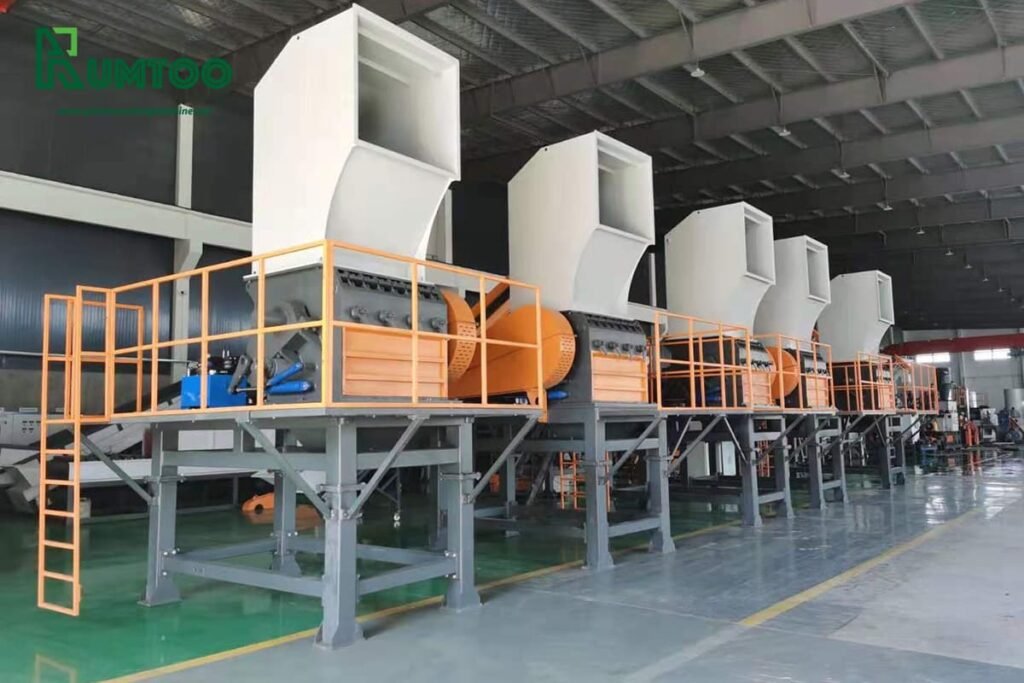Introduction:
As we venture into the 21st century, sustainability has become a focal point for businesses, governments, and individuals alike. Efficiently recycling plastic waste is crucial to this, particularly given the rising concerns over plastic pollution. At the heart of this environmental revolution, plastic recycling machines are playing a key role. This blog post will delve into the latest trends in plastic waste recycling machinery, with a special focus on pioneering recyclers that are shaping the future of this crucial industry.
In recent years, plastic waste has become a major environmental issue. To tackle this issue, recycling machines have been developed to help reduce plastic pollution and promote sustainability. In this blog post, we will explore the latest trends in plastic recycling machines and highlight their benefits for recyclers. One of the most notable trends in plastic recycling machinery is innovation. New technologies are being developed to make the processing of plastics more efficient and effective. For example, some machines now use artificial intelligence to automatically sort different types of plastic. This not only saves time but also reduces errors, improving overall efficiency. Another trend is customization. Many companies now offer customized solutions based on specific needs or requirements. This means recyclers can choose from a range of options depending on their budget, capabilities, or other factors. Finally, the industry’s focus on sustainability is growing. Many manufacturers are using environmentally friendly materials and processes to produce their machines, while others are developing new ways to recycle more types of plastics. Overall, these innovations are shaping the future of the plastic recycling industry, making it more efficient, cost-effective, and sustainable than ever before!
Meeting High Capacity Needs
With the ever-growing demand for plastic recycling, recycling machines must adapt to the needs of large-scale production. The trend for high-capacity machines addresses this necessity, allowing recyclers to efficiently handle larger volumes of plastic waste. These machines are designed to handle mass production while maintaining optimal performance, ensuring a seamless workflow throughout the recycling process. By meeting high production capacity needs, recyclers can boost their productivity and help drive a more efficient circular economy.
Smart Recycling Machines:
A key trend in the future of plastic recycling is the rise of intelligent machines. These cutting-edge devices use advanced technologies such as Artificial Intelligence (AI) and Machine Learning (ML) to enhance efficiency and outcomes. AI-driven systems can streamline key processes including sorting, shredding, and cleaning. By minimizing manual intervention, identifying, sorting, and recycling different types of plastics becomes more accurate. This precision optimizes the recycling process, reducing contamination while not only enhancing operational efficiency but also lowering labor costs and enhancing safety measures.
Energy-saving Machines:
As the world pays increasing attention to energy consumption, energy-saving recycling machines are attracting more and more attention. These machines are designed to consume less energy while maintaining high operational efficiency. By reducing energy demand, these machines not only lower operating costs but also contribute towards the larger goal of reducing carbon emissions.
Compact and Modular Design
Compact and modular design is becoming a major trend in the field of plastic recycling machines. These designs offer numerous benefits to recyclers, including space-saving, easier installation and maintenance, and the ability to expand or customize the machine as needed. Compact and modular machines are particularly advantageous for small-scale recyclers or those with limited space. An example of a compact and modular plastic recycling machine is the KRS series air-cooled plastic recycling machine, which allows recyclers to select and combine different modules according to their specific needs.
Conclusion:
The latest trends in plastic recycling machines reflect the industry’s commitment to innovation, sustainability, and efficiency. As recyclers continue to push the boundaries of what’s possible, we can look forward to effectively managing and responsibly recycling plastic waste in the future. Through these advancements, the plastic recycling industry is not only adapting to current challenges but also shaping a sustainable future for us all.
As we closely follow these exciting developments, it’s clear that tomorrow’s machines will continue to drive progress in this crucial industry, leading us towards a more sustainable world.
Spotlight on Innovators:
An industry leader is Rumtoo Machine. This start-up company has developed a unique chemical recycling process that transforms unrecyclable plastic waste into valuable chemicals. This transformative technology has the potential to revolutionize the way we manage and recycle plastic waste.
To stay updated on the latest news from Genius, follow us on our social media channels.



